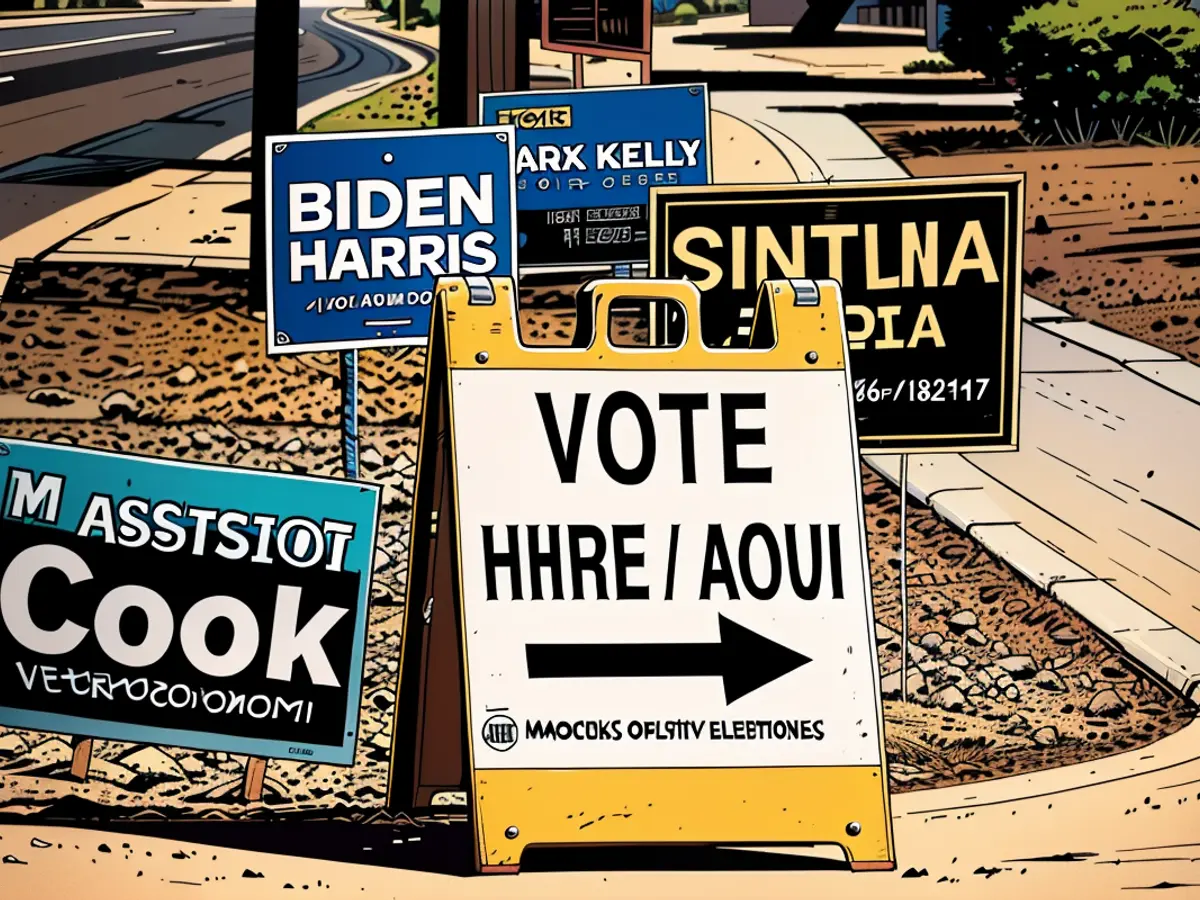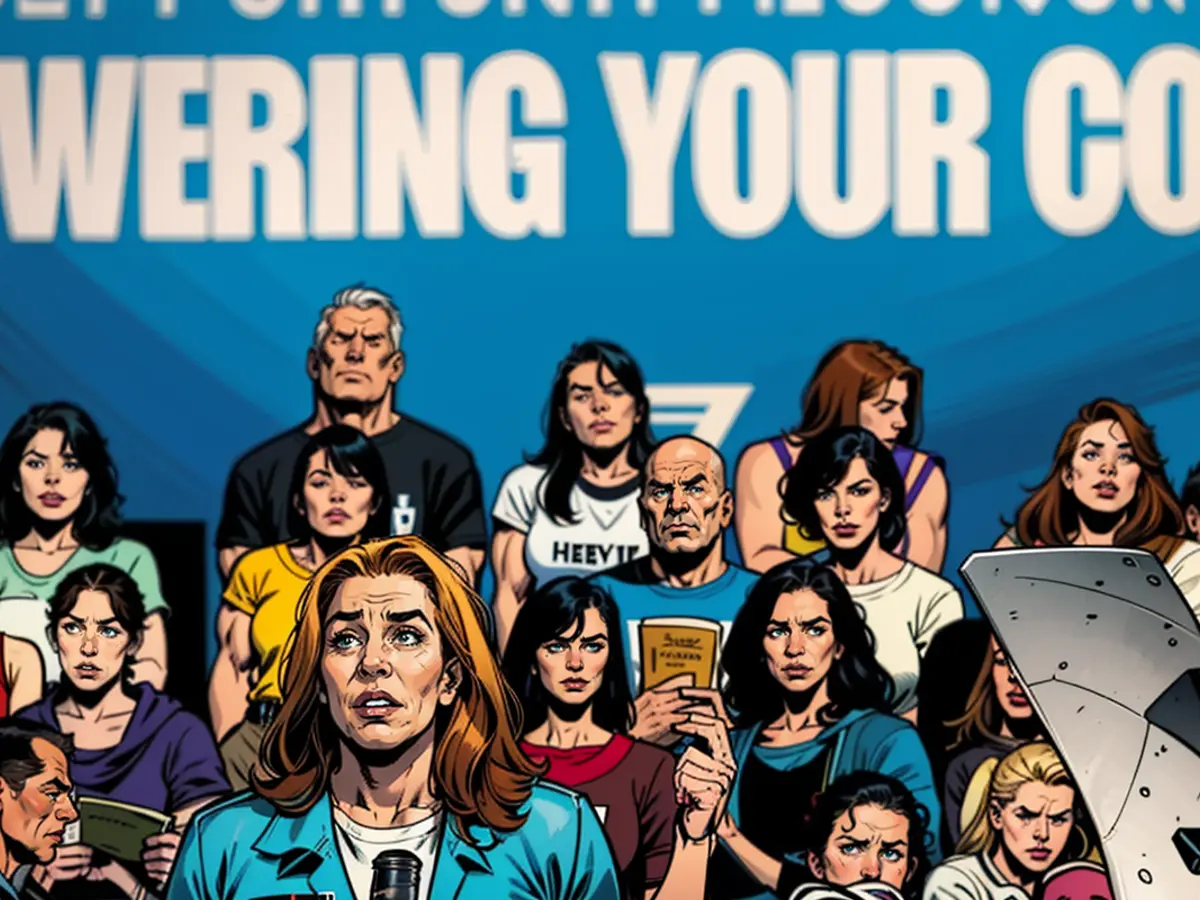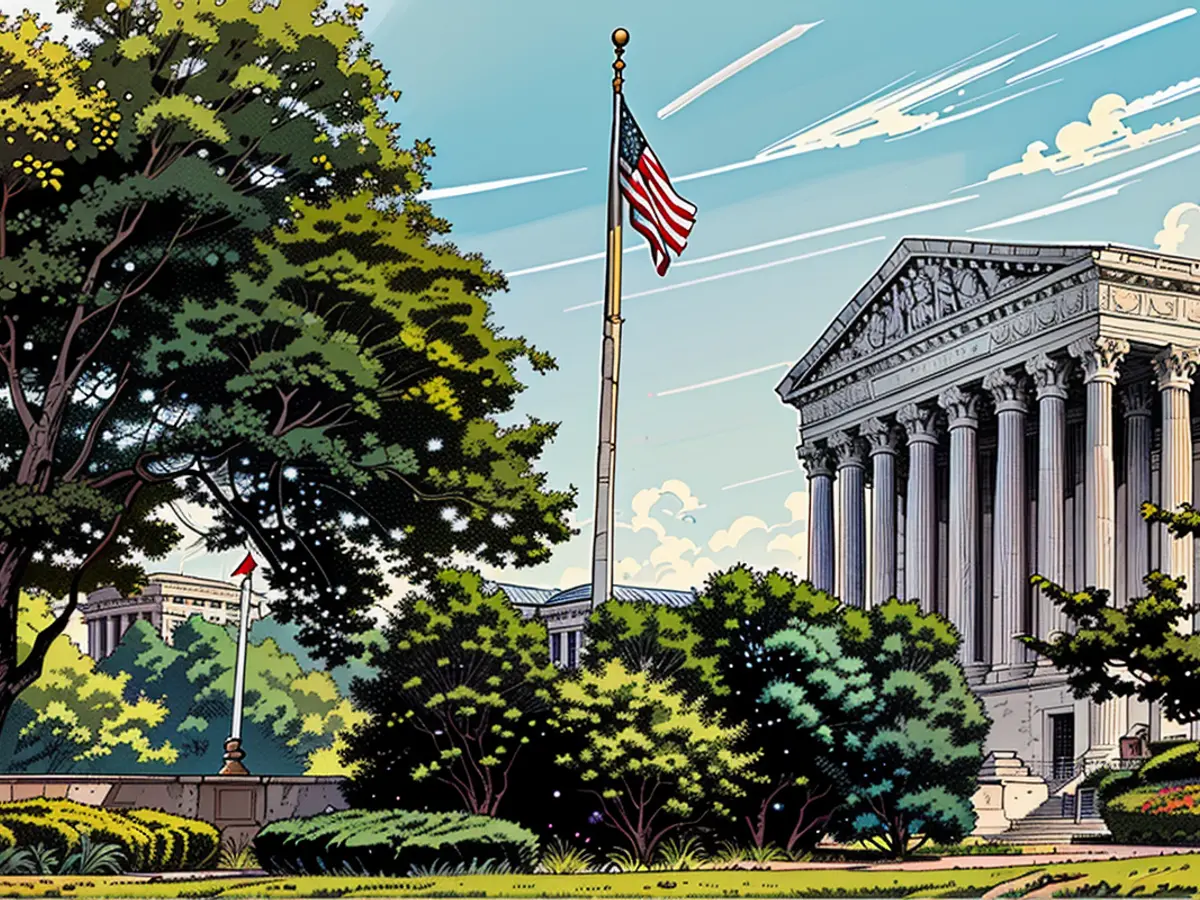The Department of Justice advocates for the Supreme Court to postpone implementing certain elements of Arizona's law requiring citizenship proof for voters.
The top court is requested to intervene in a controversy surrounding the voting regulations of a pivotal state, involving a topic that resonates with political tension during the 2024 political crusade.
In a court submission, U.S. Solicitor General Elizabeth Prelogar stated that "judicial involvement at this juncture would undermine the orderly operation of the election, potentially disenfranchising numerous voters who have already signed up to vote using the federal registration form."
The disagreement was backed by Arizona's Democratic state authorities, who declared in their own court statements that court intervention at this stage would be "destabilizing."
The Biden administration, along with civil rights organizations who have also filed lawsuits over the 2022 law, assert that it conflicts with the National Voter Registration Act by mandating that individuals using the federal registration form provide documentary evidence of citizenship to vote in the presidential election and to use mail-in voting in the state.
The Supreme Court was petitioned by the Republican National Committee and state GOP legislators last week to reestablish the requirement for the upcoming election, following a trial judge's ruling striking it down.
The civil rights groups were successful in challenging another provision of the law that demanded documentary evidence of citizenship for individuals using the state voter registration form, while eliminating prior safeguards for voter registrations lacking those documents.
The groups argued that the law violates a 2018 consent decree stemming from a separate lawsuit. According to the consent decree, county officials use state DMV records to verify the citizenship status of voters who did not provide proof of citizenship, but the 2022 measure would cease this practice for individuals who register using the state registration form.
The civil rights groups, in a filing joined by the Democratic National Committee and the state Democratic party on Friday, told the Supreme Court that allowing this aspect of the law to take effect would disenfranchise voters.
If the Supreme Court grants the GOP request, the Democrats and groups wrote, "voters would find their applications rejected solely based on the type of paper they use to register."
Republicans are eager to make the supposed threat of non-citizen voting a prominent theme in the 2024 election campaign. The intricate manner in which Arizona formulated its proof-of-citizenship law is in part due to a 2013 Supreme Court ruling that limited when those documents could be required to vote. The Supreme Court, citing the NVRA, stated then that states cannot demand proof-of-citizenship documents for federal elections for registrants using the federal form if the form itself does not include the requirement.
Arizona has already established a divided system for federal vs. state elections, as the 2013 Supreme Court precedent did not prohibit proof-of-citizenship requirements for voters in non-federal elections.
Republicans argue that the requirement can be imposed in presidential elections because only states – and not Congress – have the power to manage voter registration in those elections. The Biden administration disputed this argument in Friday's filing, while also criticizing the Republican reasoning for imposing the requirement on mail-in voting.
Republicans have asked the high court to act swiftly in the case, citing an August 22 deadline elections officials have given for resolving disputes over ballot initiatives.
Arizona Secretary of State Adrian Fontes, a Democrat, stated in his own Friday filing that any change to the current regime at this time would cause "undue hardship" for him and county election administrators, while perplexing voters.
The politics surrounding this issue are complex, with the Democratic state authorities opposing any court intervention that they believe could disrupt the election process. The 2024 political landscape is influenced by this controversy, as Republicans seek to make the issue of non-citizen voting a key campaign topic.







